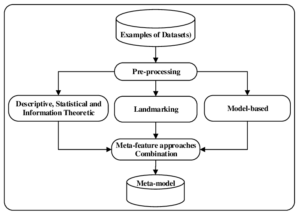Foods to Eat and Avoid after a Heart Attack

Foods to Eat and Avoid after a Heart Attack
Foods to Eat and Avoid after a Heart Attack – Surviving a heart attack is a transformative experience that serves as a stark reminder of the fragility and value of our health.
It serves as a wake-up call, prompting us to take proactive steps, particularly in the realm of nutrition.
The food choices we make are pivotal, not only in facilitating recovery from a heart attack but also in mitigating the risk of future cardiovascular issues. Adopting a heart-healthy diet is essential for promoting optimal heart function and overall well-being.
To guide you on this journey towards better heart health, it’s important to understand which foods can aid in the healing process and which ones are best avoided.
Firstly, it’s crucial to recognize that heart attacks primarily occur due to the accumulation of plaque in the coronary arteries. This plaque buildup can result in blockages, compromising blood flow and depriving the heart muscle of vital oxygen, leading to a heart attack.
Following a heart attack, the primary focus shifts towards nurturing and strengthening the heart, as well as preventing any potential further damage or complications. In this critical phase of recovery and beyond, your dietary choices play a pivotal role in supporting these objectives.
By adopting a heart-healthy diet rich in nutrient-dense foods and avoiding those that can exacerbate cardiovascular risks, you can empower yourself to take control of your heart health and enhance your overall quality of life.
Foods to Welcome into Your Heart-Healthy Diet
Fruits and Vegetables: Consider these nutrient-packed foods as the unsung heroes of heart health. Bursting with essential vitamins, minerals, dietary fiber, and powerful antioxidants, fruits and vegetables play a pivotal role in combating inflammation, regulating blood pressure, and diminishing the likelihood of developing heart disease.
Numerous studies have consistently highlighted the cardiovascular benefits associated with consuming a diet abundant in fruits and vegetables. By incorporating a vibrant array of colors into your meals, you can ensure a diverse intake of nutrients, enhancing the overall nutritional profile of your diet and bolstering heart health.
Whole Grains: Incorporating whole grains such as oatmeal, brown rice, barley, and whole wheat bread into your diet can significantly benefit your heart. These grains are rich in dietary fiber, particularly soluble fiber, which has been shown to effectively lower cholesterol levels and promote heart health.
On foods to eat and avoid after a heart attack, research has indicated that individuals who consume a higher quantity of whole grains as part of their regular diet tend to have a reduced risk of developing heart disease, emphasizing the importance of incorporating these heart-healthy grains into your meals.
Lean Protein Sources: Following a heart attack, adequate protein intake is crucial for supporting the body’s repair and recovery processes. Opt for lean protein sources such as skinless poultry, fatty fish rich in omega-3 fatty acids (including salmon, mackerel, and sardines), legumes, and nuts to fulfill your protein requirements while prioritizing heart health.
Omega-3 fatty acids, abundantly found in certain types of fish, are renowned for their cardioprotective properties, including reducing inflammation and lowering the risk of heart rhythm abnormalities, making them an invaluable addition to a heart-healthy diet.
Healthy Fats: Contrary to popular belief, not all fats are detrimental to your health. Embracing the consumption of monounsaturated and polyunsaturated fats, commonly found in olive oil, avocados, and nuts, can be beneficial for heart health. These healthy fats have been shown to help lower levels of bad cholesterol, while simultaneously delivering essential nutrients and promoting overall heart strength and vitality. Incorporating these heart-healthy fats into your diet can contribute to maintaining optimal cardiovascular health and well-being.
Foods to Steer Clear of for Heart Health
Saturated and Trans Fats: Foods rich in saturated and trans fats, such as red meat, butter, cheese, and various processed foods, are major culprits behind elevated cholesterol levels and accelerated plaque accumulation in the arteries. Limiting the intake of these harmful fats is essential in mitigating the risk of future heart attacks and promoting cardiovascular health.
SEE ALSO: Health Experts Warn Against 58-Year-Old Mike Tyson’s Boxing Comeback
Salt: Consuming excessive amounts of sodium can contribute to elevated blood pressure levels, a significant risk factor for heart disease. In the aftermath of a heart attack, reducing salt intake is recommended to help manage and regulate blood pressure effectively.
Sugar: Overindulging in sugar, particularly from processed foods and sugary beverages, can lead to unwanted weight gain and heighten the risk of developing heart disease. It is prudent to minimize the consumption of foods containing added sugars to maintain optimal heart health.
Processed and Junk Foods: These convenience foods are often laden with detrimental ingredients such as high levels of salt, sugar, saturated fats, and trans fats. Not only do they offer minimal nutritional value, but they can also impede the heart’s healing process and undermine overall cardiovascular health.
Transitioning to a heart-healthy diet following a heart attack entails more than just eliminating certain foods; it involves adopting a holistic approach to eating that prioritizes fresh, nutrient-dense foods.
Extensive research, including studies focusing on the Mediterranean diet and the DASH diet, consistently underscores the cardiovascular benefits associated with adopting these dietary modifications.
In conclusion, the food choices you make exert a profound influence on the health of your heart, particularly following a heart attack.
By prioritizing nutrient-rich foods and curtailing the consumption of unhealthy fats, salt, and sugars, you can facilitate the healing process of your heart and diminish the likelihood of encountering future cardiovascular issues. Remember, embracing dietary changes is not merely a path to recovery but a journey towards fostering a healthier and more vibrant life.
For those concerned about heart disease, it is beneficial to explore studies highlighting a prominent cause of heart failure and how a common blood test could potentially advance heart failure treatment.
For additional insights into heart health, consider delving into recent studies showcasing innovative approaches to repairing the human heart and findings suggesting that moderate coffee consumption may offer protective benefits against heart failure.
Source: knowledge.com















